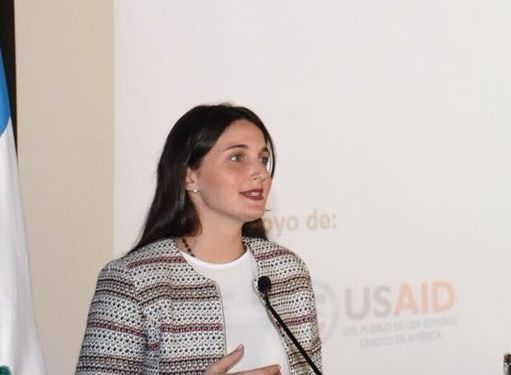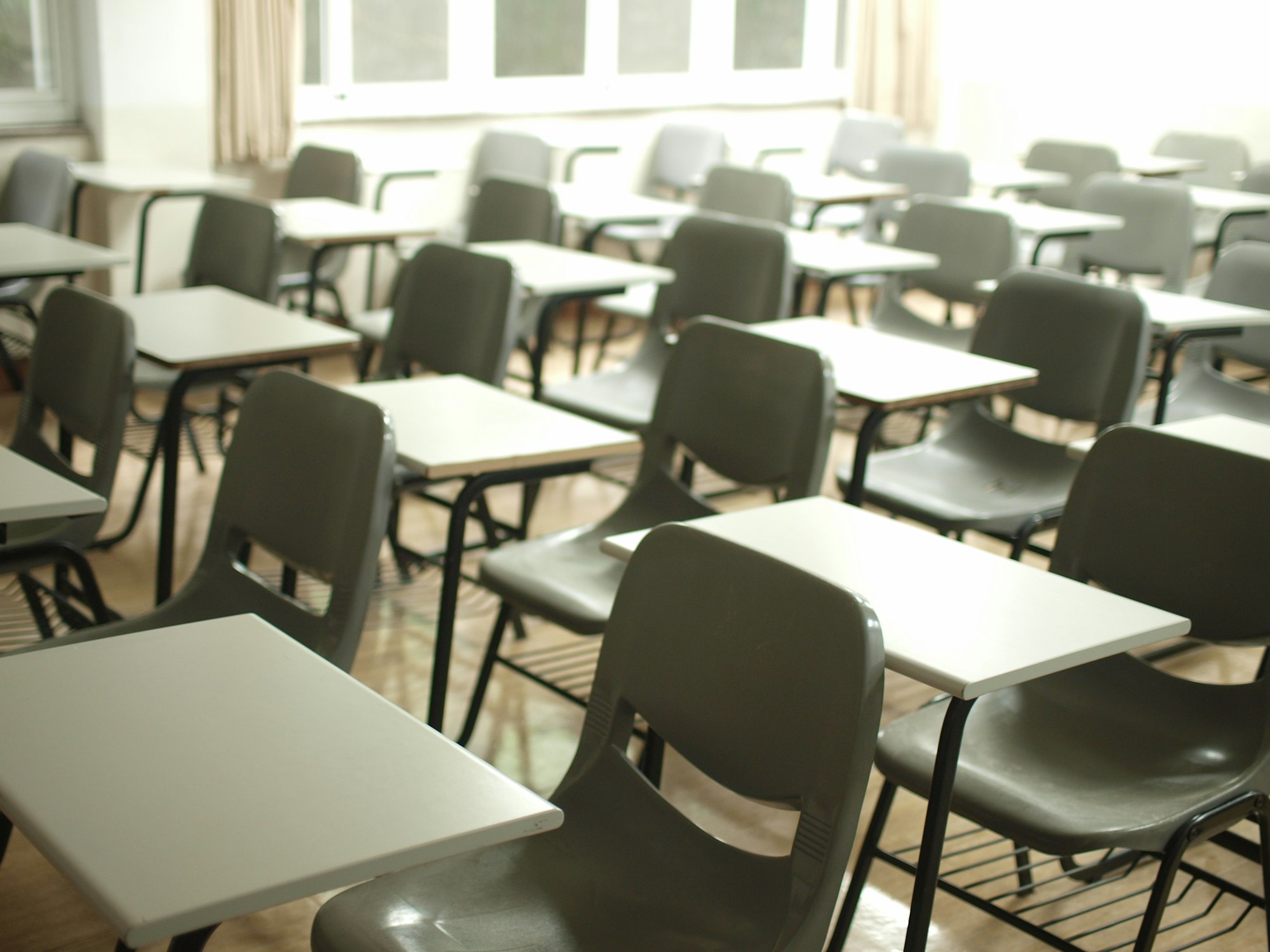On 14 April 2021, the federal Government, through the Necessity and Urgency Decree 241/2021 announced, among other measures, the closure of schools in the metropolitan area of Buenos Aires (comprising the city of Buenos Aires and part of the province of Buenos Aires).
After the federal Government’s announcement, the mayor of the city of Buenos Aires, in a press conference, explained that the city had not been consulted to reach the decision and vowed to contest it before the Supreme Court.
The decision to close schools hit hard amongst citizens in light of the experience of 2020, which saw a suspension of in-person learning that lasted for most of the 2020 school year, although it had been initially dictated to be in force for 14 days.
Besides, the clash between the federal and the city’s governments —which in surface only conveyed opposing views on how to handle the pandemic— brought forward interesting debates concerning federalism and hyper-presidentialism.
The Case before the Supreme Court
On 16 April 2021, the city presented before the Supreme Court a request for a declaratory judgement claiming that the closure of schools established in Decree 241/2021 was unconstitutional. Particularly, the city argued that the national authorities had interfered within the local autonomy of the city and that, in any case, such measure should have been decided by Congress. Furthermore, the city challenged the data used as a basis by the national authorities to justify the decision and contended that the measure failed a necessity test.
On its part, the national Government argued that the measure was a sanitary regulation, established in accordance with the powers vested upon the federal Government. The federal Government explained that the measures were necessary in light of the dire sanitary situation, which could imply the collapse of the health system. It highlighted a 25% increase in the use of public transportation in the metropolitan area on Buenos Aires due to school-related commutes. Additionally, federal authorities highlighted that young people (from six to 29 years) were the group with the higher increase in contagion. Further, it noted the fact that the city had complied with similar previous decisions without arguing the alleged intromission with local competencies.
The preliminary opinion of the Public Prosecutor
Prior to rendering its judgement, the Supreme Court requested the office of the Public Prosecutor to issue an opinion on the matter.
Related to the matter of the autonomy of the city, the Public Prosecutor considered that the federal Government had the power to implement the measure in question. First, the Prosecutor understood that the measure concerned a matter of public health. Second, the Prosecutor argued that the matter implied an interjurisdictional issue given that the transmission of the virus went beyond the borders of the city, particularly in light of the use of public transportation. Hence, the federal Government was empowered to establish such a health measure concerning the metropolitan area of Buenos Aires.
A different conclusion was reached when the Prosecutor evaluated whether the circumstances allowed for the enactment of the policy through a decree. In such analysis, the Prosecutor considered that the federal Government had failed in justifying the necessity of the closure of schools. He explained that the data presented to back the measure was too general and did not present in clear terms how schools remaining open had affected Covid-19 contagion. Particularly, the Prosecutor disputed the relation between the higher levels of contagion and in-school learning.
On 4 May 2021, the Supreme Court rendered its judgement on the matter, despite the fact that the decree’s term had elapsed. The Court deviated from the opinion of the Prosecutor and held that the autonomy of the city of Buenos Aires had been breached.
Particularly, that was the understanding of the majority vote of Judges Maqueda and Rosatti. They explained that the measure concerned educational policy, which is a local matter according to the Constitution. Additionally, Judge Rosenkrantz, who reached the same conclusion, remarked that the federal authorities had failed to support their claim concerning the interjurisdictional character of the issue (ie, explaining how in-person classes in the city affected the provinces). Rosenkrantz, the President of the Court, considered that the nature of the pandemic meant that Covid-19 related matters went beyond interprovincial or national borders. Nevertheless, that did not imply the interjurisdictional character required by the Constitution to allow for federal regulation. Additionally, Judge Rosenkrantz reasoned that following the logic of the federal authorities would require all matters concerning the pandemic to be decided by federal authorities.
On his part, Judge Lorenzetti highlighted that, concerning health and education, both local and federal authorities had concurring competences. However, he reasoned that, if no agreement was reached, it was for local authorities to decide such matters. Additionally, he put forward a different analysis to that of his colleagues. Besides pondering on whether the decision was to be made by federal or local authorities, Judge Lorenzetti evaluated the measure per se. Lorenzetti argued that the evaluation of the measure’s constitutionality required assessing the balance of the rights in question (ie, health and education). In doing so, he argued that, even if the pandemic could allow for the restriction of the right to education, such restrictions could not impair the essence of the right. Such was the case when the length of the restrictions affected the quality of education. Lastly, Judge Lorenzetti pointed out that, given the broad aspects required to evaluate the suitability of the closure of schools, judges were ill-equipped to decide on such matters.
It is worth mentioning that Judge Highton did not vote on the matter given that she had already voted against hearing the case. In her vote, Judge Highton understood that the case did not concern a matter under the original jurisdiction of the Supreme Court.
Individual presentations by families lodged before the local judiciary
The first instance decision
On 16 April 2021, two days after the measures were announced, a public defender and a public guardianship advisor of the city of Buenos Aires sued the city’s government on behalf of families of the city before a local court on administrative matters. The plaintiffs claimed the violation of constitutional rights, particularly the right to education. They understood that the local government was failing in its duty to guarantee the right to education. Therefore, they requested the courts to order the local government to defend the autonomy of the city of Buenos Aires and maintain schools open. Additionally, they required the DNU 241/2021 that established the closure of schools to be declared unconstitutional. Prior to deciding on the matter, the Tribunal required the city’s government to answer the plaintiff’s claims. In its memorandum, the government argued that the closure of schools in 2020 had doubled the rates of failed courses, that schools were not a high-risk factor for contagion, and that in-person schooling was key to guarantee the right to education. Considering that, it concluded that it coincided with the arguments of the plaintiff and required the Tribunal to decide on the injunctive relief sought. After hearing both arguments, the Tribunal decided that it lacked jurisdiction to hear the case given that it concerned a federal decree, and that in any case the matter was already to be decided by the Supreme Court.
An hour before the decision on the lack of jurisdiction was rendered, a new case arguing on very similar grounds was lodged before another local court on administrative matters. The judge in this case considered that it was related to the matter already decided and, therefore, did not grant the relief sought by the plaintiffs. Nevertheless, the matter was appealed and sent to a second instance to review the decision.
The second instance decision
The preliminary opinion of the Public Prosecutor
Prior to rendering its judgement, the second instance Tribunal requested the office of the Public Prosecutor to issue an opinion on the matter. The Public Prosecutor understood that the arguments provided in the first instance were insufficient to reject the appeal, since the limitations to the right to appeal must be restrictively interpreted. In fact, the denial of the appeal would imply an impairment of the right to effective judicial protection, which must be considered, especially in a case regarding collective interests and social relevance. Although in accordance with procedural legislation, the case should have been sent to the judge who had denied the appeal to grant the wrongly denied remedy, the Prosecutor considered—to avoid delays in the process and due to the urgency of the case and the nature of the rights at stake— that the second instance should address the treatment of the appeal directly.
Second, regarding the competence of the local justice to hear the case, the Prosecutor argued that, although the defendant was the government of the city of Buenos Aires, the object of the claim consisted of the suspension of a decree issued by the President, therefore, being a direct challenge of a federal norm, the jurisdiction to resolve on its constitutionality corresponded to the federal judiciary, in accordance with the provisions of Article 116 of the National Constitution and the jurisprudence of the Supreme Court in the same sense. However, given the relevance of the dispute, its urgency and the collective implications reached by the decree, in this case, formal rigor would constitute a denial of justice. Therefore, the grounds for a court to issue an injunctive relief were met, despite its lack of jurisdiction to hear the case, as provided in Article 179 of the Procedural Code of Justice of the city of Buenos Aires.
Finally, based on the serious consequences that the suspension of in-person schooling entails for children and making special reference to the lack of information provided by the national Government to justify it, the Prosecutor considered that the danger in the delay of the injunctive relief was evident.
The Court of Appeals’ decision
On 18 April 2021, the judges of the Second Instance Court on Administrative Matters of the city of Buenos Aires unanimously decided to grant the injunctive relief requested, ordered the suspension of the Decree of Necessity and Urgency and instructed the government of the city of Buenos Aires, within the framework of its autonomy and competences, to provide for the continuity of on-site classes in the territory of the city of Buenos Aires.
The court held that in this case the right to education of children and adolescents and the access to effective judicial protection were seriously compromized, which entails the need to provide the parties and society with a timely decision that responds to their claims. At the same time, it pointed out that since the government of the city of Buenos Aires was the defendant in the case, it was the city's justice system which had jurisdiction to decide on such issues, in accordance with the autonomy enshrined in Article 129 of the National Constitution. In this sense, and from a preliminary analysis of the Decree of Necessity and Urgency in question, it observed that it directly violated the autonomy of the city of Buenos Aires and its competence to regulate local matters, such as the right to education. In turn, it referred to several normative provisions that reaffirm the competence of the city of Buenos Aires to regulate educational matters (Articles 5, 75 clause 19 and 125 of the Argentine Constitution, National Education Law 26,206). Therefore, it concluded that the decree implied an encroachment on local autonomy by the national authority and, consequently, an affectation to the republican system of government. Finally, it argued that the decree did not express in its foundations specific epidemiological data concerning the city of Buenos Aires that would justify the reasonableness of schools’ closure. Likewise, since the action was aimed at protecting the collective dimension of the right to education, it was appropriate to give its decision a general effect.
As a result of this decision, the mayor of the city of Buenos Aires held a press conference on Sunday 18 April at 10 pm, announcing the continuation of on-site schooling in the territory of the city.
Criticism of the decision
The decision of the court of second instance faced several criticisms on constitutional grounds. The main criticism focused on the violation of Article 116 of the National Constitution and Laws 27 and 48, according to which federal regulations must be discussed in federal courts. Despite the fact that the defendant in the case was the city of Buenos Aires, the purpose of the case was that the local government refrained from complying with a federal regulation - the DNU, on the understanding that it violated the local autonomy established in the National Constitution. In addition, in accordance with the Supreme Court's jurisprudence, this kind of conflict falls within its original jurisdiction, since the defendant is a province - the Court has equated the city of Buenos Aires to a province for the purposes of its jurisdiction - and the federal issue is predominant in the case. Therefore, in a manifest contradiction with the constitutional and legal norms and the jurisprudence in that sense, the Court of Appeals issued the injunctive relief but did not declare its lack of jurisdiction - this possibility was enabled by the norms - alleging the violation of the autonomy of the city of Buenos Aires. At the same time, the federal Government was not summoned to participate in the case.
Following the decision from the Second Instance Court, the national Government filed before a federal court a motion seeking an order that would bar the local court of the city of Buenos Aires to take the case based on lack of jurisdiction. On 20 April, the federal judge decided to grant the request of the national Government, annul the injunction granted by the local court, and refer the case to the Supreme Court. In so deciding, he stated that the interest of the national State was manifest in the case, therefore, the case could not be validly resolved without its intervention in the process. At the same time, based on the jurisprudence of the Supreme Court of Justice, it understood that the case should be resolved by the Supreme Court, in its original instance.
The judge's decision was also criticized. In accordance with the law, he had no jurisdiction to annul the injunctive relief ordered by the Second Instance Court on Administrative Matters of the city of Buenos Aires.
Despite the court decision, the government of the city of Buenos Aires ordered schools to remain open, until the Supreme Court issued a decision in the case that it had initiated in the original instance challenging the decree.
Our opinion
Behind the garb of a judicial and procedural battle, there are several constitutional issues at stake. First, the route chosen to restrict rights during the pandemic; second, the distribution of competencies between the nation and the provinces during these circumstances; and third, the reasonableness of the measures adopted by the Government.
We believe that, when faced with difficult situations which may require the limitation of fundamental rights and therefore generate disagreements on the forms to do it, the solution should not be a judicial battle. The multiple interpretative conflicts linked to procedural issues make it clear that it is far from the principles that inspire our institutional design to leave this type of decisions in the hands of the judiciary.
The Argentine Constitution requires – and it has institutional mechanisms in place to do so – that our disagreements be resolved through democratic deliberation among all of those who may be affected by such measures. Concretely, what the Constitution requires, for these extreme cases, is what our democratic commitment demands: those decisions must be agreed with the opposition in Congress. Although the President has the constitutional power to issue decrees of necessity and urgency, the Constitution foresees this legal tool for cases of extreme necessity (foreign attack, natural disaster) that prevent Congress from meeting to carry its debates. For this reason, its use is absolutely null and void as long as these circumstances are not met. However, if Congress is in session –as it happened to be the case– there is no reason to restrict rights through decrees of necessity and urgency, not only because of their manifest unconstitutionality but also because of the serious consequences for our constitutional practice.
TWEET

